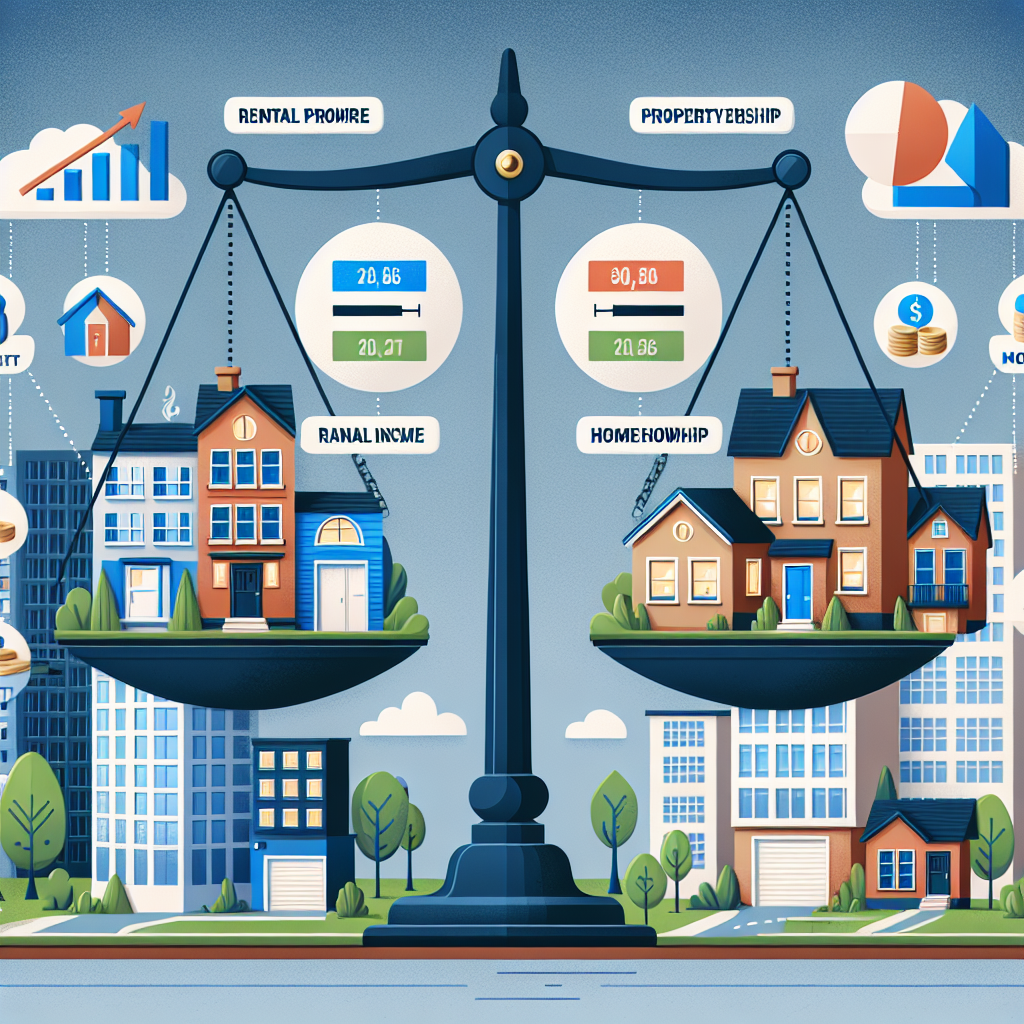Rental Properties vs. Homeownership: Which Is the Better Investment?
As the realm of real estate continues to evolve, one question remains at the forefront of many financial discussions: Is it smarter to invest in a rental property or to buy a home for personal use? This debate has long intrigued both novice and seasoned investors. To make a well-informed decision, it is crucial to examine the financial, personal, and contextual factors that influence each option.
Financial Considerations
1. Initial Costs and Ongoing Expenses
When purchasing a home for personal use, buyers need to consider the down payment, closing costs, property taxes, homeowners’ insurance, and maintenance. While these upfront costs can be high, a fixed-rate mortgage can provide predictability for monthly payments.
Rental properties also require significant initial investments, including a down payment and closing costs. However, landlords must additionally budget for ongoing expenses such as property management fees, repairs, and periods of vacancy. In return, rental properties can generate steady income, potentially covering costs and even yielding profits over time.
2. Appreciation and Equity
Homeownership allows individuals to build equity as they pay down their mortgage. Historically, real estate tends to appreciate over the long term, providing a potential return on investment when the home is sold.
Rental properties can also appreciate, adding value to the investment. Moreover, as tenants pay down the mortgage, the owner builds equity without direct financial contributions. If the rental income exceeds expenses, the investor benefits from positive cash flow, enhancing overall returns.
3. Tax Implications
Homeowners often enjoy tax advantages, such as the mortgage interest deduction and property tax deduction. These benefits can significantly reduce the effective cost of homeownership.
Rental property owners gain additional tax advantages, including deductions for mortgage interest, property management fees, repairs, and depreciation. These deductions can offset rental income, sometimes resulting in favorable tax treatment.
Personal Considerations
1. Lifestyle Flexibility
Renting offers flexibility. If life circumstances change, tenants can relocate with relative ease. Homeownership, however, implies a more permanent commitment and may limit the agility to move without incurring substantial costs.
For landlords, owning a rental property can provide the flexibility of additional income without the need to personally occupy the property. However, this comes with the responsibility of managing tenants and maintaining the property.
2. Personal Use and Enjoyment
Owning a home provides the stability and freedom to modify the property to suit personal tastes and needs. It fosters a sense of community and belonging, often enhancing the quality of life.
On the other hand, rental properties are primarily financial investments. While they might not provide personal use benefits, they offer a way to diversify an investment portfolio and generate passive income.
Contextual Factors
1. Market Conditions
Real estate markets can vary significantly by location and time. In booming markets with high appreciation rates, homeownership can be a lucrative investment. Conversely, if the market stagnates, rental properties might offer a more reliable income stream.
2. Economic Climate
In a strong economy, both rental demand and home values may rise. However, during economic downturns, rental properties might experience higher vacancy rates, while homeowners may face difficulties selling their properties.
3. Personal Financial Situation
Homeownership generally requires a stable income and good credit to secure favorable mortgage terms. Rental property investment often necessitates a significant cash reserve to cover periods of vacancy or unexpected repairs. Evaluating one’s financial health and risk tolerance is crucial in making an appropriate choice.
Conclusion
The decision between investing in rental properties and homeownership is multifaceted, involving both financial calculations and personal preferences. Homeownership offers stability, personal use benefits, and potential appreciation, making it a sound investment for those seeking a place to call their own. On the other hand, rental properties present opportunities for passive income and portfolio diversification, appealing to those willing to manage the responsibilities of being a landlord.
Ultimately, the better investment depends on individual goals, financial situations, and market conditions. By carefully considering these factors, prospective investors can make informed decisions that align with their long-term objectives and risk tolerance.














Leave feedback about this
You must be logged in to post a comment.